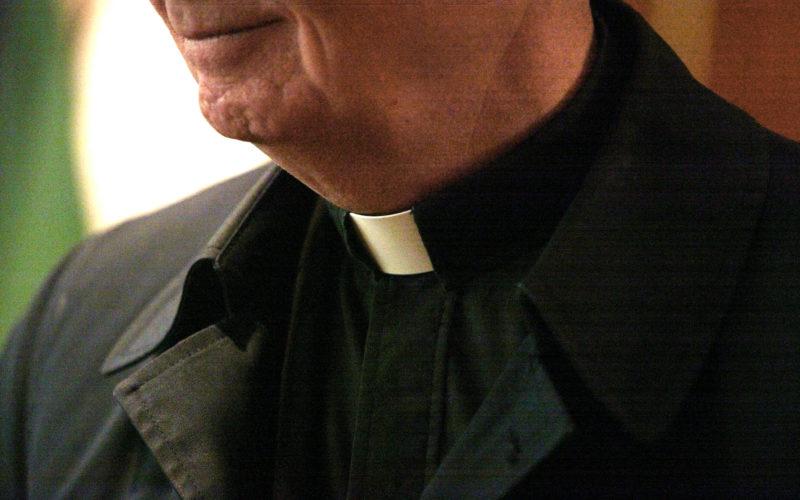|
Innocent priests also suffered in the abuse crisis
By Francis Phillips
Fr Barry O'Sullivan speaks to six priests about the crushing blow the scandal had on them If Humanae Vitae was a 20th Century watershed moment in the Catholic laity’s response towards unchanging Church teaching on contraception, the sex abuse scandals which have battered the institution in recent decades have been an occasion for painful self-examination within it. They have brought about heart-searching, shame and humiliation. News that Cardinal George Pell, the most senior member of the hierarchy in Australia, is to stand trial for alleged sex abuse or that the entire Chilean episcopacy has offered its resignation to the Pope over scandals involving the church in Chile indicates that cover-ups and accusations still continue in this long-running explosive area. I have just been reading The Burden of Betrayal: Non-Offending Priests and the Clergy Child Sexual Abuse Scandals by Barry O’Sullivan, published by Gracewing, a book that reveals another aspect to this painful saga: how the fall-out from the scandals has affected innocent members of the clergy. Ever since the news first broke of criminality and concealment in the Church, my thoughts and sympathy have gone not only to the young victims but to those affected by the collateral damage: all those conscientious, loyal, faithful men who have given their lives to their vocation only to see the priesthood torn to shreds by the media and in the eyes of the public. Fr O’Sullivan, a priest in the Salford diocese, with long experience as the Salford diocesan child protection coordinator as well as ministering to priests in prison for sexual offences, has tried to address this aspect. Starting in 2012 he conducted lengthy interviews with six randomly selected priests, asking questions such as “Can you tell me about the experience of being a priest in the shadow of the child abuse scandal? And “How do you think the hierarchy dealt with this issue?” The six priests, to whom O’Sullivan gives pseudonyms to protect their identity, spoke candidly about their feelings. They all said that one of the most difficult things “was what they perceived to be other people’s perception of them”. They also spoke of feeling horrified, initially incredulous, and overwhelmed by the news. One of them described it as a “holocaust”. They experienced grief and loss of their core identity, a lack of confidence in the Church, a fear of false allegations being made against them and a sense of betrayal, both by the perpetrators and by the Church authorities. Yet despite talking honestly about the anguish they have experienced, none of the six priests wanted to abandon their vocations. After reflection, they also spoke of the need of forgiveness, the importance for the perpetrators of having treatment and their own on-going commitment to the Church, especially as it “had finally begun to react appropriately.” My only caveat is the author’s use of sociological language throughout, which sometimes obscured the sense of what he was saying and made his book sound like a doctoral thesis, e.g. “I opted for a qualitative research tool to capture “in-depth portraits” of the individual experiences of six randomly selected priests whom I would interview. I chose interpretative phenomenological analysis (IPA) as my qualitative method and hermeneutic phenomenological methodology as the most appropriate and effective way to elicit the data which I wished to investigate…” One reminds oneself that behind this language lie the lives and sanctifying labours of six good priests – and countless others.
|
.
Any original material on these pages is copyright © BishopAccountability.org 2004. Reproduce freely with attribution.
